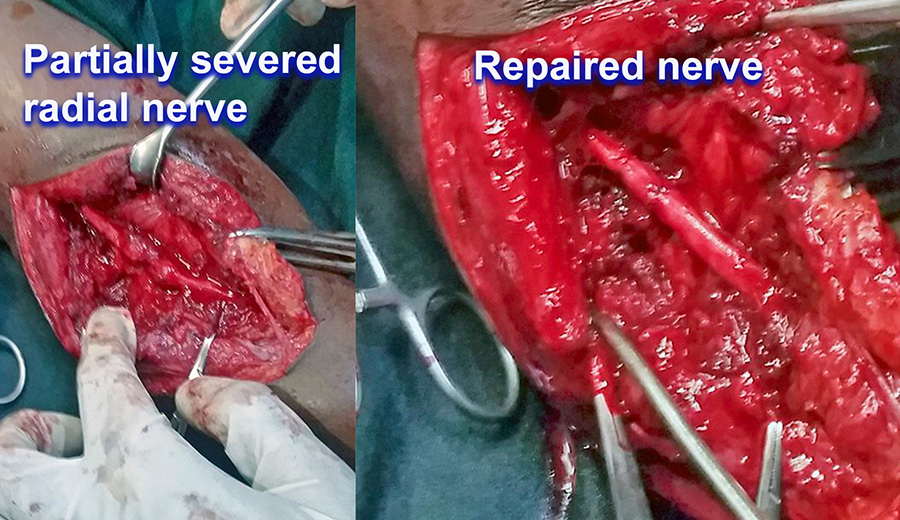
One of the most devastating injuries in war occurs when vital blood vessels, bones, and/or tendons are injured. The Neurosurgery Department at Mekelle University Ayder Hospital is currently making a special effort to treat patients afflicted with these disabling nerve injuries. Although often on popular televisions heroes are portrayed to recover from such wounds without surgery that is not the case in real life. Hundred of civilians in Tigray have suffered death or injury from air strikes, drone strikes, directed military fire from Eritrean, Amhara militia, or ENDF forces. Sometimes soldiers would intentional shoot an arm or a leg to permanently disable women they raped or farmers they wanted to evict from their homes knowing such injuries would render them unable to work. Being able to perform this surgery for peripheral nerve injuries absolutely requires the continued supply of anesthetics, suture material, and other supplies otherwise these patients will be left with a permanent disability. Too long a delay in availability of materials can result in a potentially treatable condition becoming a permanent disability because the nerve damage is irreversible.
Since I came to Mekelle University’s Ayder Comprehensive Specialized Hospital in Tigray in 2015 we had developed among the staff and the specialists in training the ability to deal with these potentially devastating injuries. Losing the use of a hand or leg can mean a farmer can not farm and that his family could starve. If the nerve is completely severed repair is best done within a few weeks. If there is partial injury then sometimes delayed surgery even many months later can help restore functional use of the extremity. Prior to the onset of war in November 2020 we had dealt with many such injuries mostly from motor vehicle or work accidents with very good outcomes in the vast majority of cases deemed operable candidates. In some cases we even did transplants of non-vital sensory nerves in the leg to restore function in the arm successfully.

